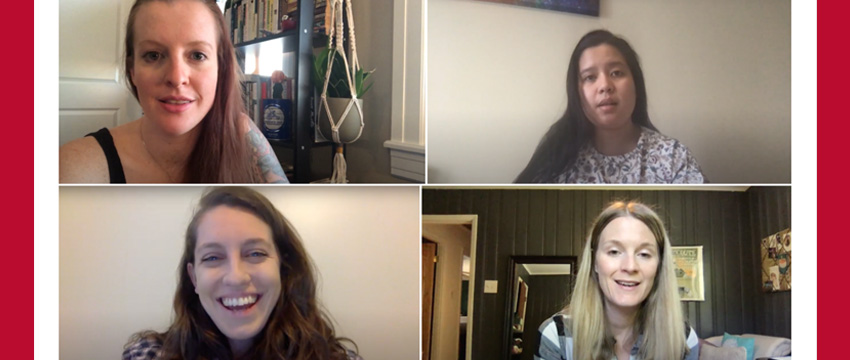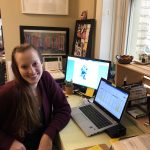Grady alumni offer tips tor reporting on COVID-19 from home

Grady alumni offer tips tor reporting on COVID-19 from home
Editor’s Note: this feature originally appeared on the Medicaljournalism.grady.uga.edu website.
Quarantine started early for Erica Hensley, an investigative reporter with Mississippi Today. In early March, she attended a conference focused on computer-assisted reporting in New Orleans, hosted by the Investigative Reporters and Editors. A few days later, IRE announced that a conference guest had tested positive for COVID-19, and all attendees were advised to self-quarantine for 14 days.

“I started covering coronavirus as a potential patient from home,” Hensley said. “Which meant I was having to call into every press conference. I was having to do my best to research and fact-check from home. Because I literally couldn’t leave to go chase stuff down,” she said.
Journalism is a hands-on career. Reporters go into the field and make direct contact with sources to gather the facts and see things for themselves. However, on March 11 the World Health Organization officially deemed the spread of COVID-19 a pandemic, leading to more widespread social distancing measures. The dynamics of reporting was forced to change at a time when health reporting is all the more important. At the same time, access to key experts— such as emergency room doctors and epidemiologists— became more difficult as those essential workers managed the virus’ spread.
“You also feel bad calling them sometimes because you’re like, ‘I’m sorry. I know you’re super busy and you have really important healthcare things you need to do and not just talk to journalists,’” explained Victoria Knight, a reporter for Kaiser Health News.
But she and other Grady alumnae said that while coronavirus has disrupted their day-to-day routines, it hasn’t stopped them from getting important information out to the public.
“I think it’s important to not give up and just keep going,” Knight said.
It’s Never Too Late To Learn New Skills
In a series of short videos shared with current Grady students, alumnae of the health and medical journalism program who work in the fields of journalism and public affairs said they have found innovative ways to maneuver this new normal.
They offered suggestions for covering the most popular news story of our time, including tips for using video animations, for moving beyond the numbers to add context and for taking cues from what other news organizations are doing.
“It’s never too late to learn new skills,” said Hyacinth Empinado of STAT News. As a multimedia journalist, she creates animated explainers to help simplify complex ideas, like how COVID-19 compares to other causes of death.
She encouraged students to learn video animation technologies like After Effects and D3. The Adobe Creative Suite provides access to a form of reporting that doesn’t require going out into the field to collect footage, Empinado explained.
Hensley said she relies on her understanding of the social determinants of health to add context to her stories on COVID-19. Each day she scrapes data from her health department’s website to get an update on the number of coronavirus cases in her state. But she tries to look beyond the numbers.
“What do these increases and tests mean? What are our per capita rates for our counties?” Hensley asks herself.
Lauren Baggett, director of communications for UGA’s College of Public Health and host of the show Health Desk on the WUGA, suggested looking at what other news outlets are covering, particularly those on the local level.
“Our local Athens papers are really doing a better job of communicating the resources that are available to individuals and families in our community,” she said. Stories about how locals can support the service industry are top of mind for consumers of news, she said.
Alumnae advised current students to keep pressing on, despite the challenges, and to view the pandemic as an opportunity to innovate alternative approaches to reporting and storytelling.
You’re not alone, they told students.
“This is an unprecedented time. We are learning a lot, and we’re learning a lot on the go,” Baggett said.